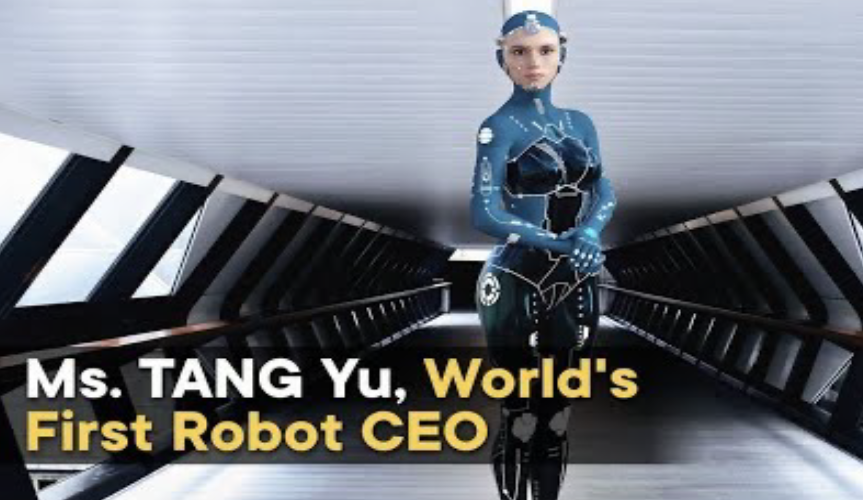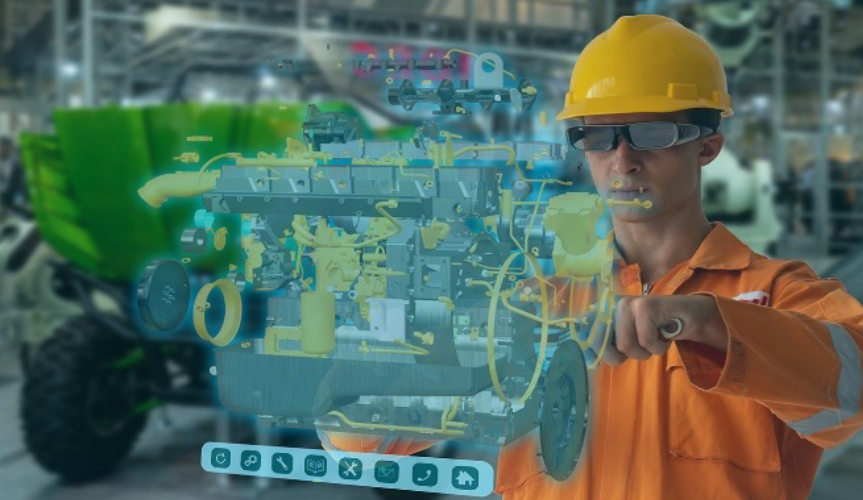Pioneering companies have integrated AI and/or robots into their management and governing bodies.
VITAL 2014
In 2014, the British company Aging Analytics created VITAL (Validating Investment Tool for Advancing Life Sciences), one of the first artificial intelligence experiments designed to assist in investment decisions within a corporate board.
In May 2014, the Hong Kong-based venture capital firm Deep Knowledge Ventures (DKV) announced the appointment of VITAL as an “observer” on its board of directors.

Although it had no voting rights, its role was to analyze data and provide recommendations, which human board members could then choose to accept or reject.
How It worked
- Data Analysis: It gathered and processed data from clinical trials, patents, financial results, and more.
- Pattern Recognition: It used techniques to identify signals indicating whether a project had a strong chance of success or a high risk of failure.
- Over 50 Indicators: Each investment opportunity was evaluated based on more than fifty different factors.
VITAL detected that companies focused on longevity research had more favorable historical statistics, and therefore recommended investing in that field.
Reactions
Legal Aspect: According to Hong Kong law, only natural persons can serve as board members. For that reason, VITAL was never an official board member but merely an invited, non-voting participant.

Some experts and journalists viewed the move as more symbolic than substantive. They noted it was more likely intended to generate headlines than to fundamentally change the company’s governance.
Outcomes
· Limited Role: Although VITAL provided some interesting analyses, its involvement was brief and largely symbolic.
It was never released as a standalone product. The only registered license was granted to DKV in 2014, and no further sales or implementations were reported afterward.
Legacy
This case marked a milestone by showing that AI could take part in high-level discussions, even if in a limited role. It sparked a broader debate about how far technology could go in corporate decision-making.
NETDRAGON 2022
The Chinese company NetDragon Websoft develops and offers online video games, and manages its own gaming portals and app stores.
With branches inside and outside China, it also creates digital education platforms and communities, combining fun and learning for both students and teachers.
In 2022, it appointed Tang Yu as CEO of one of its subsidiaries.

Tang Yu is an AI-powered robot acting as Chief Executive Officer. Some of its responsibilities include:
- Making strategic and leadership decisions
- Assessing risks and managing operational efficiency
- Promoting a fair and efficient work environment
- Training staff in the company’s values and standards
It works 24 hours a day, 7 days a week, with no need for a salary—representing a significant economic advantage for the company.
Founder Dejian Liu stated that “AI is the future of corporate management,” and that Tang Yu reflects the company’s commitment to transforming business operations. Its data-driven approach, market adaptability, and innovative leadership style have been key to its success.
Tang Yu’s performance and achievements
- Has reviewed over 90% of employee leave requests within the company. This includes vacation, absence, and shift change applications—all handled automatically.
- Streamlines administration and reduces repetitive tasks for human staff.
- Has significantly improved NetDragon’s overall efficiency and productivity.
Tang Yu is a virtual figure, not a physical robot, so its presence in meetings is represented through digital avatars or graphical interfaces—no real photographs are available.

Financial impact
Since Tang Yu’s appointment, NetDragon’s stock outperformed Hong Kong’s Hang Seng Index, with a 10% increase in the first six months—raising its valuation to over HKD 9 billion (approximately USD 1.1 billion).
Recognition
In April 2024, Tang Yu was named “Best Virtual Employee of the Year in China” at the Digital Humans Industry Forum, highlighting her technological innovation and business potential.
Considerations and criticisms
Tang Yu has sparked debate over:
- The lack of human empathy and judgment in complex decision-making
- The impact on human employment and labor inequalities
- The excessive reliance on algorithms in corporate management
Algorithms
When important decisions are delegated to artificial intelligence (AI) systems without ongoing human oversight, a significant risk arises: overdependence on algorithms.
- Lack of human judgment: Algorithms lack common sense and empathy. In ethical or emotional situations, they may respond in cold or inappropriate ways.
- Bias in data: If the data contains errors or biases, the system may replicate or even amplify them.
- Low adaptability to the unexpected: Algorithms do not easily adjust to crises or unforeseen changes.
- Loss of control: Blind trust in automated decisions can cause executives to lose visibility into the decision-making process.
In short: relying too heavily on algorithms is like turning on autopilot mid-flight and leaving the cockpit. It works… until something goes off-script.
Future perspectives
NetDragon plans to continue developing the algorithms behind Tang Yu to build an open, interactive, and highly transparent management model, with a vision toward a metaverse-based work environment, which means:
- A 3D virtual space accessible through electronic devices or special glasses
- Simulated offices, meeting rooms, and common areas within that space
- Real-time communication, file sharing, and collaboration with colleagues
- All happening from anywhere, making work more connected and collaborative
In summary, Tang Yu demonstrates that an AI can effectively take on executive functions, setting a precedent in corporate leadership.
This case highlights the emergence of algorithmic agents as informal participants in boardroom decision-making.
PRACTICAL APPLICATIONS OF AI
Executive Meetings
Using models like ChatGPT 4.0 in executive meetings adds significant value:
- Organizing and prioritizing the agenda based on session goals and topics
- Automatically generating meeting minutes with key points and agreements
- Analyzing data in real time to provide relevant charts and figures
- Suggesting possible scenarios and forecasts based on market trends
- Tracking tasks and deadlines agreed upon by participants
- Providing real-time translation or interpreting technical terms for international attendees
- Detecting conversation patterns to assess participation levels and focus of each attendee
These functions allow executives to concentrate on deeper analysis and discussion of the topics at hand.

Digital twins
Industrial companies like BMW create virtual replicas of their processes to simulate scenarios, which means:
- A digital version of machines and industrial plants
- The replica reflects, in real time, how the equipment is operating
- It’s used to test adjustments, detect failures, and plan improvements without disrupting actual production
- This saves time and resources by avoiding mistakes before they occur in the real environment
Using this technology, BMW reduced production planning time by nearly 30%. According to the company, these real-time databases enable faster and more informed decision-making.
Predictive analytics and visualization
AI tools in finance automate the analysis of key performance indicators (KPIs). Deloitte recommends shifting from descriptive analytics to predictive analytics, as the latter allows businesses to anticipate future trends.
Additionally, the use of interactive dashboards enables real-time exploration of scenarios and risks.

Machine learning is already being applied in strategic planning. For example, Deloitte highlights that these tools help identify the best course of action in high-impact decision-making.
Projections 2025–2027
Forecasts indicate a rapid acceleration in AI adoption:
- Gartner estimates that by 2026, over 70% of government agencies will use AI to improve administrative decision-making.
- 49% of CIOs (Chief Information Officers) have already fully integrated AI into their strategies.
- Many CEOs (Chief Executive Officers) believe AI can generate more objective plans than humans.
Advances in the public sector
In Dubai, United Arab Emirates, AI will be used to draft and review legislation starting in 2025. A dedicated government office has been established for this purpose.
Prince Mohammed bin Rashid stated that this will make the legislative process faster and more accurate.

Technology
Companies like Realbotix—a Canadian firm specializing in the development of hyper-realistic humanoid robots equipped with artificial intelligence—are pushing the boundaries of emotional interaction. Its flagship product, Aria, is a female android that combines lifelike design with AI focused on emotional engagement. The company plans to commercialize its AI in 2025.
Other companies, such as Meta (Stretch, Builder Bot), Amazon (Proteus, Robin), and Tesla (Optimus), are also investing in the development of humanoid robots.
Key technologies driving these changes include:
- Large Language Models (LLMs), such as GPT-4 and GPT-5
- Predictive analytics
- Digital twins to simulate corporate scenarios
Governance
The World Economic Forum (WEF) and other organizations are promoting governance consortia to ensure the responsible use of AI.
Conclusion
The integration of AI into management, boardrooms, and public institutions is a clear and growing trend. Leading companies and governments are moving toward making AI a virtual member of their decision-making structures.
Those who adopt this technology with vision and ethics will gain a true competitive advantage.

